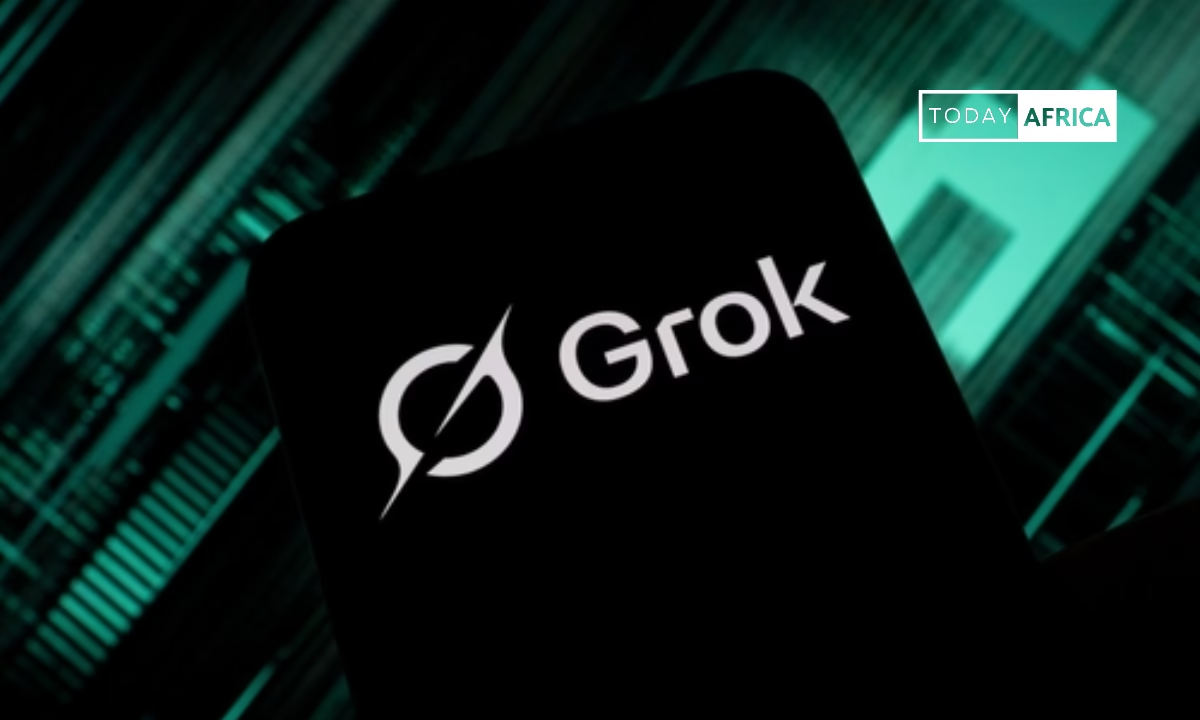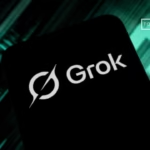As a business owner in Nigeria, safeguarding your brand’s identity is crucial. One effective way to achieve this is through trademark registration.
Understanding the various trademark classes in Nigeria is essential for businesses and individuals aiming to protect their intellectual property effectively.
In this article, you’ll learn the list of trademark classes in Nigeria, providing you with the knowledge needed to navigate the registration process successfully.
What is a Trademark?
A trademark is a distinctive sign, symbol, word, or combination thereof used to identify and distinguish the goods or services of one entity from those of others.
It serves as a badge of origin, assuring consumers of the quality and source of the products or services they are purchasing.
In Nigeria, trademarks are governed by the Trademarks Act, CAP T13 Laws of the Federation of Nigeria, 2004, and the Trademarks Regulation, 1967.
Importance of trademark classification
Trademark classification is a system that categorizes goods and services into specific classes. This system is vital because it determines the scope of protection a trademark receives. By classifying trademarks, businesses can ensure that their marks are protected in the relevant sectors, preventing others from using similar marks in related fields.
The Nice International Classification System
Nigeria adheres to the Nice International Classification of Goods and Services, established by the Nice Agreement of 1957. This system comprises 45 classes:
- Classes 1 to 34 cover products
- Classes 35 to 45 cover services
Each class represents a specific category of goods or services, and a separate application is required for each class in which an applicant seeks registration.
Case of Recent Trademark Issue in Nigeria
Recently, a company called Zap was dragging its name with one of Paystack’s newly launched product called Zap.
It turns out that Zap (the company) trademarked its name under Class 35 (Advertising, Business and Retail Services), while Paystack trademarked its Zap product under Class 36 (Insurance and Financial Services).
This means that Zap as a company has no case against Paystack. So before you trademark, read this article and be sure you select all the classes that are relevant to your business.
Don’t allow a lawyer select for you alone. Sit with your lawyer and select all the classes you need. Doing this will stop your company name becoming someone else’s.
Note: Trademark is not forever. There is a limit to the period of protection. Ask your lawyer very well.
Read Also: Top 10 Solar Farms in South Africa This Year
Detailed Breakdown of Trademark Classes in Nigeria
Product Classes
Class 1: Chemical Products
Includes chemicals used in industry, science, and photography, as well as in agriculture, horticulture, and forestry; unprocessed artificial resins; unprocessed plastics; manures; fire extinguishing compositions; tempering and soldering preparations; chemical substances for preserving foodstuffs; tanning substances; adhesives used in industry.
Class 2: Paint Products
Encompasses paints, varnishes, lacquers; preservatives against rust and against deterioration of wood; colorants; mordants; raw natural resins; metals in foil and powder form for painters, decorators, printers, and artists.
Class 3: Cosmetics and Cleaning Products
Covers bleaching preparations and other substances for laundry use; cleaning, polishing, scouring, and abrasive preparations; soaps; perfumery, essential oils, cosmetics, hair lotions; dentifrices.
Class 4: Lubricant and Fuel Products
Includes industrial oils and greases; lubricants; dust absorbing, wetting, and binding compositions; fuels (including motor spirit) and illuminants; candles and wicks for lighting.
Class 5: Pharmaceutical Products
Comprises pharmaceutical and veterinary preparations; sanitary preparations for medical purposes; dietetic substances adapted for medical use, food for babies; plasters, materials for dressings; material for stopping teeth, dental wax; disinfectants; preparations for destroying vermin; fungicides, herbicides.
Class 6: Metal Products
Covers common metals and their alloys; metal building materials; transportable buildings of metal; materials of metal for railway tracks; non-electric cables and wires of common metal; ironmongery, small items of metal hardware; pipes and tubes of metal; safes; goods of common metal not included in other classes; ores.
Class 7: Machinery Products
Encompasses machines and machine tools; motors and engines (except for land vehicles); machine coupling and transmission components (except for land vehicles); agricultural implements other than hand-operated; incubators for eggs.
Class 8: Hand Tool Products
Includes hand tools and implements (hand-operated); cutlery; side arms; razors.
Class 9: Computer and Software Products and Electrical and Scientific Products
Covers scientific, nautical, surveying, photographic, cinematographic, optical, weighing, measuring, signaling, checking (supervision), life-saving, and teaching apparatus and instruments; apparatus and instruments for conducting, switching, transforming, accumulating, regulating, or controlling electricity; apparatus for recording, transmission, or reproduction of sound or images; magnetic data carriers, recording discs; automatic vending machines and mechanisms for coin-operated apparatus; cash registers, calculating machines, data processing equipment, and computers; fire extinguishing apparatus.
Class 10: Medical Instrument Products
Comprises surgical, medical, dental, and veterinary apparatus and instruments, artificial limbs, eyes, and teeth; orthopedic articles; suture materials.
Class 11: Environmental Control Instrument Products (lighting, heating, cooling, cooking)
Includes apparatus for lighting, heating, steam generating, cooking, refrigerating, drying, ventilating, water supply, and sanitary purposes.
Class 12: Vehicles and Products for Locomotion by Land, Air, or Water
Covers vehicles; apparatus for locomotion by land, air, or water.
Class 13: Firearm Products
Encompasses firearms; ammunition and projectiles; explosives; fireworks.
Class 14: Jewelry Products
Includes precious metals and their alloys and goods in precious metals or coated therewith, not included in other classes; jewelry, precious stones; horological and chronometric instruments.

Class 15: Musical Instrument Products
Comprises musical instruments.
Class 16: Paper and Printed Material Products
Covers paper, cardboard, and goods made from these materials, not included in other classes; printed matter; bookbinding material; photographs; stationery; adhesives for stationery or household purposes; artists’ materials; paint brushes; typewriters and office requisites (except furniture); instructional and teaching material (except apparatus); plastic materials for packaging (not included).
Class 17: Rubber and Plastic Products
This class includes unprocessed and semi-processed rubber, gutta-percha, gum, asbestos, mica, and substitutes for these materials; plastics and resins in extruded form for use in manufacture; packing, stopping, and insulating materials; flexible pipes, tubes, and hoses, not of metal.
Class 18: Leather Products
Encompasses leather and imitations of leather; animal skins and hides; trunks and traveling bags; umbrellas and parasols; walking sticks; whips, harness, and saddlery; collars, leashes, and clothing for animals.
Class 19: Non-Metallic Building Materials
Covers building materials not of metal; non-metallic rigid pipes for building; asphalt, pitch, and bitumen; non-metallic transportable buildings; monuments, not of metal.
Class 20: Furniture Products
Includes furniture, mirrors, picture frames; containers, not of metal, for storage or transport; unworked or semi-worked bone, horn, ivory, whalebone, or mother-of-pearl; shells; meerschaum; yellow amber.
Class 21: Houseware and Glass Products
Comprises household or kitchen utensils and containers; combs and sponges; brushes (except paintbrushes); brush-making materials; articles for cleaning purposes; steel wool; unworked or semi-worked glass (except building glass); glassware, porcelain, and earthenware not included in other classes.
Class 22: Ropes, Cordage and Fiber Products
Includes ropes and string; nets; tents and tarpaulins; awnings of textile or synthetic materials; sails; sacks for the transport and storage of materials in bulk; padding, cushioning, and stuffing materials (except of paper, cardboard, rubber, or plastics); raw fibrous textile materials and substitutes.
Class 23: Yarns and Threads
Covers yarns and threads for textile use.
Class 24: Fabrics and Textile Products
Encompasses textiles and substitutes for textiles; bed covers; table covers; household linen; curtains of textile or plastic.
Class 25: Clothing and Apparel Products
Includes clothing, footwear, headgear.
Class 26: Lace, Ribbons, Embroidery and Fancy Goods
Comprises lace and embroidery, ribbons and braid; buttons, hooks and eyes, pins and needles; artificial flowers; hair decorations; false hair.
Class 27: Floor Covering Products
Covers carpets, rugs, mats and matting, linoleum, and other materials for covering existing floors; wall hangings (non-textile).
Class 28: Toys and Sporting Goods Products
Includes games, toys, and playthings; video game apparatus; gymnastic and sporting articles not included in other classes; decorations for Christmas trees.
Class 29: Meat and Processed Food Products
Encompasses meat, fish, poultry, and game; meat extracts; preserved, frozen, dried, and cooked fruits and vegetables; jellies, jams, compotes; eggs; milk and milk products; edible oils and fats.
Class 30: Staple Food Products
Covers coffee, tea, cocoa, and artificial coffee; rice; tapioca and sago; flour and preparations made from cereals; bread, pastries, and confectionery; edible ices; sugar, honey, treacle; yeast, baking powder; salt; mustard; vinegar, sauces (condiments); spices; ice.
Class 31: Natural Agricultural Products
Includes raw and unprocessed agricultural, aquacultural, horticultural, and forestry products; raw and unprocessed grains and seeds; fresh fruits and vegetables; fresh herbs; natural plants and flowers; bulbs, seedlings, and seeds for planting; live animals; foodstuffs and beverages for animals; malt.
Class 32: Light Beverage Products
Comprises beers; mineral and aerated waters and other non-alcoholic beverages; fruit beverages and fruit juices; syrups and other preparations for making beverages.
Class 33: Wines and Spirits (not including beers)
Covers alcoholic beverages (except beers).
Class 34: Smoker’s Products
Includes tobacco; smokers’ articles; matches.
Service Classes
Class 35: Advertising, Business and Retail Services
Encompasses services such as advertising; business management; business administration; office functions.
Class 36: Insurance and Financial Services
Includes services related to insurance; financial affairs; monetary affairs; real estate affairs.
Class 37: Construction and Repair Services
Comprises services related to building construction; repair; installation services.
Class 38: Communications Services
Covers services related to telecommunications.
Class 39: Transportation and Storage Services
Includes services related to transport; packaging and storage of goods; travel arrangement.
Class 40: Treatment and Processing of Materials Services
Class 40 encompasses services related to the mechanical or chemical processing, transformation, or production of objects or substances. This includes services such as recycling of waste and trash, air purification and treatment of water, printing services, and food and drink preservation.

Class 41: Education and Entertainment Services
This class includes services aimed at developing the mental faculties of individuals or animals, as well as services intended to entertain or engage attention. Examples include education, providing of training, entertainment, and sporting and cultural activities.
Class 42: Computer and Software Services and Scientific Services
This covers services related to scientific and technological activities, including research and design, industrial analysis and research services, and the design and development of computer hardware and software.
Class 43: Restaurant and Hotel Services
This class pertains to services for providing food and drink, as well as temporary accommodation. It includes services provided by establishments such as hotels, restaurants, and cafés.
Class 44: Medical and Beauty Services and Agricultural Services
Includes medical services, agricultural services, hygienic and beauty care for human beings or animals, and services related to agriculture, aquaculture, horticulture, and forestry.
Class 45: Personal, Legal and Social Services
This class covers legal services, security services for the physical protection of tangible property and individuals, and personal and social services rendered by others to meet the needs of individuals.
Choosing the Appropriate Trademark Class in Nigeria
Choosing the correct trademark class is crucial for ensuring comprehensive protection of your brand. Registering under the appropriate class safeguards your trademark within the specific category of goods or services you offer. It’s important to note that if your business spans multiple categories, you may need to register your trademark in more than one class.
Read Also: Top 25 Food Startups in Africa This Year
Conclusion
Understanding the trademark classes in Nigeria is fundamental for effective brand protection. By familiarizing yourself with the Nice Classification system and accurately identifying the classes pertinent to your goods or services, you can navigate the trademark registration process more efficiently.
Consulting with a trademark professional or legal expert is advisable to ensure that your trademark is adequately protected across all relevant classes, thereby safeguarding your brand’s identity and value in the Nigerian market.
Leave a comment below and follow us for more tips and updates:
- Facebook: Today Africa
- Instagram: Today Africa
- Twitter: Today Africa
- LinkedIn: Today Africa
- YouTube: Today Africa Studio
















